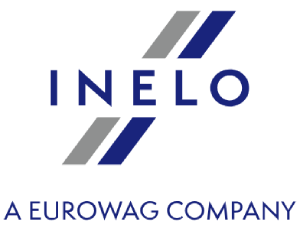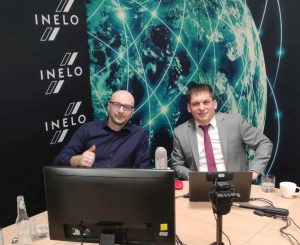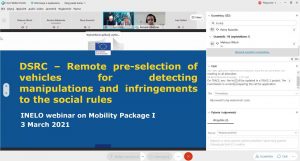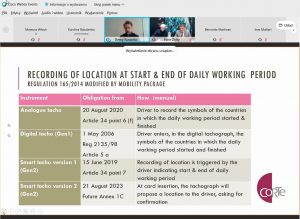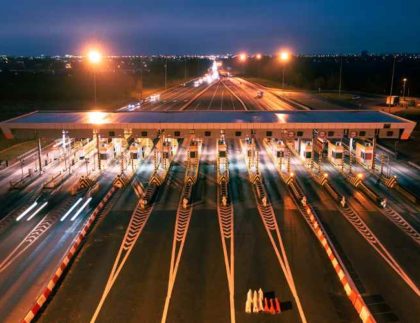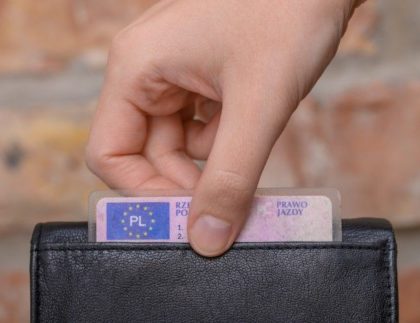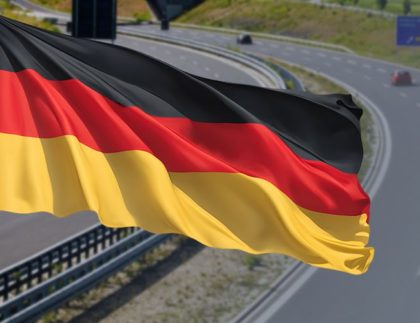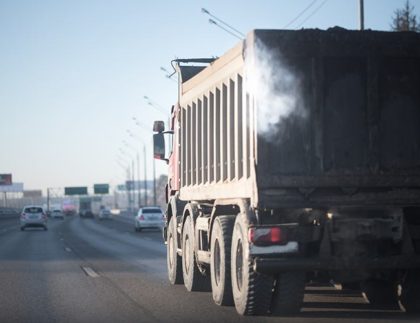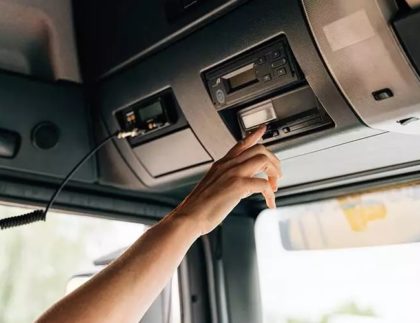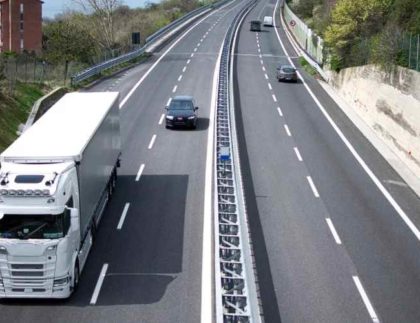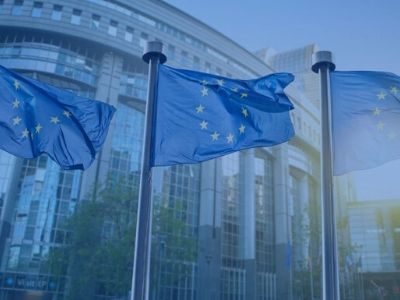
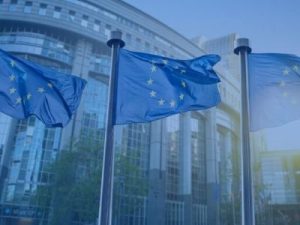 Almost 130 representatives of 50 different authorities from over 30 countries took part in the international online conference for enforcement authorities from all over Europe, organized by the Inelo Group together with the Board of the Confederation of Organisations in Road Transport Enforcement (CORTE). The special guests of the videoconference, which was entirely devoted to issues related to the mobility package, were European Commission delegates.
Almost 130 representatives of 50 different authorities from over 30 countries took part in the international online conference for enforcement authorities from all over Europe, organized by the Inelo Group together with the Board of the Confederation of Organisations in Road Transport Enforcement (CORTE). The special guests of the videoconference, which was entirely devoted to issues related to the mobility package, were European Commission delegates.
On March 3, 2021, using modern means of communication, a meeting was held to discuss the issues related to the mobility package as interpreted by the enforcement authorities, as well as to the practical application of the new transport regulations in the European Union. The event we organized was also a response to the inquiries by enforcement authorities, carriers and even the European Commission. Consistent interpretation, the creation of clear, proportionate regulations that are easy to apply throughout the European Union by all enforcement authorities is essential from the perspective of fair market access and competition. All the more, we would like to thank all participants for such a wide attendance, as well as for the joint conclusions that will allow us to better understand and adapt to the provisions of the mobility package. Find out more about the details of the event.
The first part of the conference was started by an expert of the Inelo Group, Michał Franczyk, who opened it by summarizing the new changes to the regulations governing road transport in the European Union. He reminded that from 20th August last year changes in the driving and rest times of drivers came into force throughout the European Union, and subsequent updates of the regulations, including posting and market access, will enter into force at the beginning of 2022. And it as the driving and rest times regulations, which we already have to apply, that Inès Maillart from the European Commission began her speech with. In addition, she drew attention to the issue of the implementation of regulations that will take place in the near future, thus providing the enforcement authorities with an overview of what awaits them in the near future, including real-time access to ERRU during roadside checks. What is important, Inès Maillart did not forget about carriers, reminding that the European Commission provided explanations in the form of questions and answers to help both them and drivers as well as enforcement authorities in the correct application of the new regulations. The first version of the questions and answers is now available, and an update that will include other important and bothering issues has been announced.
What is the future of smart tachographs? This question was answered by another speaker, Rémy Russotto, a representative of CORTE. The starting point was the tachographs that we are currently using, seamlessly moving to the important topic of changes that await these devices in 2023-2025 due to the provisions of the mobility package. Rémy Russotto introduced the current and new features of smart tachographs in detail. Enforcement authorities are already able to know work start and end countries data, GNSS locations, and in the future also data on crossing borders, or places of unloading and loading. During road checks enforcers will certainly appreciate the planned changes.
The conference agenda was very tight, and each speech was accompanied by numerous questions that often turned into constructive discussions. Therefore, to keep the pace up, after the break Bernardo Martinez de Miguel from the European Commission spoke, explaining the use of DSRC technology in tachographs and the possibilities of remote pre-selection of vehicles in order to detect manipulations and infringements. Participants could learn more about the practical use of pre-selection and remote reading of information from the tachograph using DSRC. It is worth noting that such data can be instantly analyzed by the TachoScan Control software, thus giving the enforcer information whether a given vehicle should be stopped for a detailed check.
The topic was continued by the Inelo Group expert, Jarosław Szczotka, advising on how the new regulations regarding the mobility package can be used in practice, with the use of data that is already provided by tachographs, to automate and increase the effectiveness of checks. The Inelo expert presented, among other things, the possibilities of using GNSS and DSRC featured in the first generation smart tachographs, as well as how to automate the checking of new mobility package regulations, including, for example, whether the driver had a return to the base or home organized every 4 weeks, the conditions for taking two shortened weekly rests in a row, or additional conditions for extending the driving time when returning to the company’s operations center.
At the very end, Rémy Russotto from CORTE had his second speech, touching upon the differences between AETR and Regulation 561/2006. He emphasized that the work on changes to the AETR is currently underway, and also introduced the plans to use smart tachographs in the transport to and from third countries. Thus, the CORTE representative concluded all presentations, leaving time for discussion and summary of the presentations.
We would like to note that the international online conference is a great success of the cooperation between Corte, the European Commission and the Inelo Group. As Piotr Żółty, Inelo Group International Business Development Director, emphasizes: “The preparation and implementation of new regulations is a process that is long and complicated for all parties – not only for the European Commission, for transport companies and drivers, but also for enforcement authorities that play a very important role in verifying and respecting new regulations. Such events allow to increase awareness as well as to develop a uniform interpretation of regulations, which is particularly important in the case of transport companies engaged in international transport. I am happy with the firm commitment of the representatives of the European Commission and the CORTE in this regard. Their input is very important and helps to significantly increase the awareness and uniformity of inspection practices. Given the great interest and the positive impact of the conference, we will try to repeat such events, counting on further support in this regard.”
The direction that we adopted was also proven right by our Partners’ appreciation for creating the opportunity to participate in the event, which was an opportunity to share knowledge about new regulations in the road transport sector in the European Union.
Ewa Ptaszyńska – Directorate General for Mobility and Transport, European Commission, Brussels
Land Transport Policy Officer
“Great initiative by INELO to share the knowledge about the new EU rules in the road transport sector and build a common approach to their implementation. Enforcement community plays a key role in ensuring that the EU rules are applied in the same way throughout the EU.”
Remy Russotto – CEO CORTE (Confederation of Organizations in Road Transport Enforcement)
“Dear INELO team,
Thank you very much for organizing the enforcement workshop on the Mobility Package today. This was very much appreciated by CORTE and CORTE Members. It was also a very useful introduction and reminder of the main changes to driving & resting times and the evolution of the tachograph. We believe this was a very useful exercise for enforcers. Now there is still a lot of work ahead of us to make sure we all understand the rules in the same way and reach harmonized enforcement throughout the EU and abroad. I believe we will achieve this working all together.”
